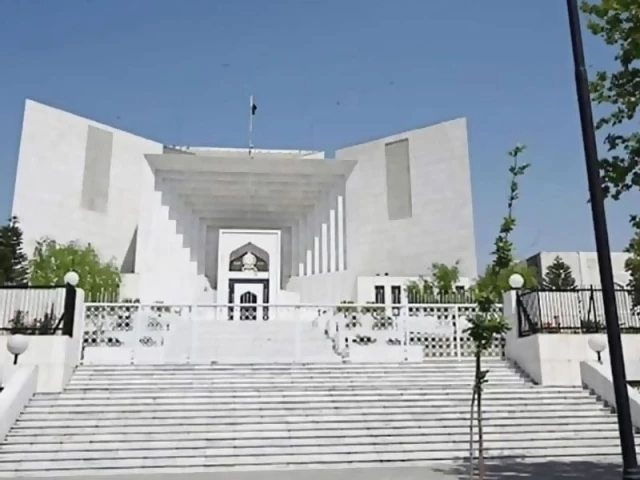Islamabad:
On Monday, the Supreme Court questioned the government’s rationale behind the profit tax whether ordinary price increases could be treated as extraordinary profits.
A constitutional bench of five members, led by Justice Aminuddin Khan, heard arguments from the petries lawyer Ahmed Jamal Sukhera.
Justice Hassan Azhar Rizvi asked, “If gasoline rises from RS150 to RS200, would it be windfall card? If sugar goes from RS160 to RS170 would it still count?”
Sukhera claimed that the tax unfairly targeted a few sectors. “If three or four people take advantage of while the majority incurs losses, how can tax be imposed?” He said and noted contradictions in government policy and that the measure was driven exclusively by “Windfall Profit Policy.”
Justice Muhammad Ali Mazhar reminded him that constitutional protection measures have boundaries: “Article 10 -A is about fair trial – what has it to do with taxation?”
Sukhera insisted that taxation should involve public participation and argued that the tax violated the entrance 47 of the Constitution, which governs parliamentary tax powers.
Justice Mazhar replied that although some municipal taxes include such provisions, “The Income Tax Act has no clause of public consultation.”
During the procedure, Sukhera noted, “Simplicity can also be a captivating charm,” that makes Justice Mazhar quip, “Maybe this is your kind of simplicity?” – Drawing of laughter.
By referring to his age, Sukhera said, “I’m old now; my kids are barmyers and they sit here.”
Justice Jamal Khan Mandokhail asked his age, and after hearing “57”, noticed “, do you consider 57 old?” – Contributing to further laughter.
Sukhera concluded, “One day none of us will be here, but this judicial decision will remain.”
The bench noted that autonomous government institutions, including Pia and steel mills, were running at a loss, but still included in the super tax list.
Justice Mandokhail noted that it is the government’s responsibility, not parliamentary. The consultation was postponed until Tuesday.
Super tax
The super tax is an additional tax on high -performance individuals, businesses and industries that are largely aimed at large companies. In the federal budget 2022-23, the government introduced up to 10% super tax on larger sectors, including cement, steel, sugar, oil and gas, fertilizers, banks and textiles, citing the need to raise extra revenue for financial stabilization.
Petitions that challenge the tax are filed before the supreme court of individuals and organizations.



